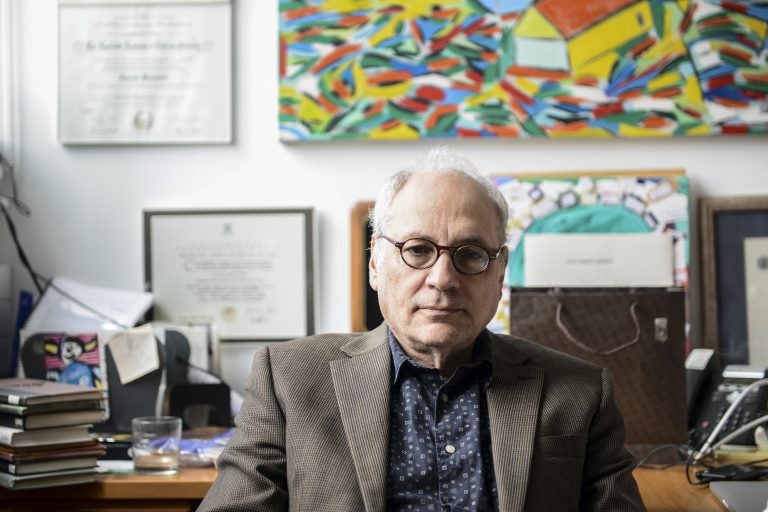University of Penn poet Charles Bernstein wins major literary prize
The award, which comes with a $165,000 purse, is given every two years from Yale University to an American poet for lifetime achievement on the event of a new publication.

Poet Charles Bernstein, who teaches at the University of Pennsylvania, has received the prestigious Bollingen Prize for his poetic achievement. (University of Pennsylvania)
A poet who teaches at the University of Pennsylvania in Philadelphia has been awarded America’s top prize for poetry – the Bollingen Prize is going to Charles Bernstein.
The award, which comes with a $165,000 purse, is given every two years from Yale University to an American poet for lifetime achievement on the event of a new publication. In the case of Bernstein, an English professor at Penn, it recognizes his book “Near/Miss,” published last fall.
“For me, it’s a great thrill to be included among the company of poets who have gone before me,” said Bernstein.
Former recipients – including Ezra Pound, Robert Frost, Louise Gluck, and Adrienne Rich – form a list of some of the country’s most celebrated poets.
Bernstein lives in New York and has been teaching at Penn since 2004, when he co-founded the university’s online audio archive of poetry readings, PennSound.
The sound of poetry is very important to Bernstein, in part because he has a form of dyslexia.
“I have a kind of cognitive dyslexia, so I’m often disoriented,” he said. “But it relates to the way I experience verbal reality. For me, I think of words as a plastic thing. I see them and hear them, and they flip.”
That dyslexic condition informs the way Bernstein writes, which can rely more on form and rhythm than meaning:
The ordinary is never more than an extension of the
extraordinary. The
extraordinary is never more than an extension of the
imaginary. The
imaginary is never more than an extension of the
possible. The possible
is never more than an extension of the impossible. The impossible is
never more than an extension of the ordinary.
Every wish has two wings, one to move it into the world, the other to
bury it deep within the heart.
“I like the terms for what I do, ‘echopoetics’,” he said. “It’s not so much the message, but the echo you hear, one word to another. You hear that in rhyme, for example, but my rhymes are not at the end of a line. They work throughout the book in different forms.”
Bernstein likes to turn a phrase around, like a man on a street corner holding a spinner sign, until its meaning shifts close to nonsensical. Then, perhaps, the reader will pay more attention to pattern and form.
It’s not just a thought experiment or clever wordplay. To Bernstein, appreciating poetic forms is an exercise in democratic thinking. To recognize language as a complex matrix of metaphors and advocacy, to parse meaning from form, the reader may be more equipped to navigate a political and cultural landscape of catchphrases and soundbites.
“When we’re talking about a democracy, we can’t have 15 words that tell us every scenario of what’s going on. We have to think about how the metaphors we use shape our views,” he said. “Poetry is not a diversion. Poetry is not a series of anecdotes that express how the poet feels. It’s actually something that explores the way reality is constituted. Reality is not a given. Reality is constituted by language.”
The $165,000 that comes with the Bollingen Pprize is unrestricted, and acts as a kind of metaphor, itself. Bernstein says the prize makes people pay more attention to the poetry it honors because, well, that’s a lot of dough.
WHYY is your source for fact-based, in-depth journalism and information. As a nonprofit organization, we rely on financial support from readers like you. Please give today.




